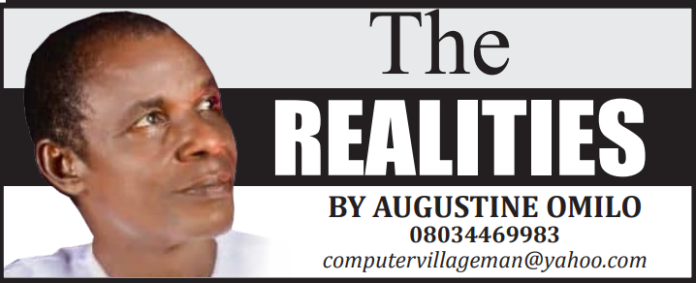As the search for indices to support government claims showing that the nation’s economy is still buoyant despite the Nigerian government’s reforms, a new and funny dimension have been added to the efforts. The latest theory has just dropped from the research room of Dr. Tope Fasua who currently functions as one of the economic advisers to President Bola Ahmed Tinubu.
Ordinarily, many Nigerians would probably ignore the submission of government officials on issues of governance because it is becoming increasingly difficult to separate propaganda from real issues in the country’s leadership. But, the case of Tope is a different one. To begin with, he falls within the age bracket of Nigerians that many citizens will be proud to have as the leader of their country.
Born 11 September 1971, Dr. Fasua is a Nigerian entrepreneur, economist, politician, and writer. He is the special adviser to the Nigerian president on economic affairs. He was the 2019 presidential candidate of Abundant Nigeria Renewal Party (ANRP). He is also the founder and CEO of Global Analytics Consulting Limited, an international consulting firm with headquarters in Abuja, Nigeria. As a political reformer, he founded the ANRP and got elected in February 2018 to serve as the national chairman of the party. He became the presidential candidate of the same party in 2019. Fasua has authored newspaper columns and six books.
Unfortunately, his views on the country’s economy appear to be mocking the down-trodden Nigerians who are always at the negative receiving ends of Nigeria’s economic management lapses.
In his recent justification of the Federal government’s economic policies, the politician expressed the view that the government efforts are yielding positive results. He hinged his belief on his conviction that despite the notion that the country’s currency, the Naira has fallen into the class of the fastest depreciating media of exchange in the world, one American dollar can still put a meal on the table of Nigerians despite the fact that the amount cannot do same to Americans.
According to him, since the current exchange rate is about N1,500 to a dollar, any Nigerian willing to feed on delicacies such as beans and roasted plantain has no business complaining about hardship in the country. He did not state how possible it is for families to feed on beans and plantain at this rate in a month. At this value, the cost of one meal translates to about 47 plates of food in N70,000 which, though is judged the minimum wage in the country has become the unofficial average personal monthly income in the country among salary earners.
However, Nigerians are not surprised at the stance like this on the part of government officials who act as though there are separate markets for the rich and the poor. Many years ago, one of such officials told the country’s citizens that telephone facilities cannot be extended to everybody because it is not for the poor. The man is still alive and he is living to see even his kinsmen in the remotest villages using telephones for their daily business activities.
Meanwhile, as an economist and aspiring president of the country, People like Dr. Tope Fasua need not be told that their performances as aides to leaders in terms of advice to a large extent will determine their acceptance by the people for higher portfolios in the future.
For the avoidance of doubts, Nigerians expect the economic team of Mr. President to help him fashion out ways to overcome the global economic threats posed by the policies of the American president, Mr. Donald Trump.
Even though the US has exempted oil and minerals that form about 90% of Nigeria’s export goods to America from the 14% tariff imposed on Nigerian exports to her, Trump and his people have frowned at the current trade surplus in favour of Nigeria in the two country’s trade relationship which presently stand at about $1.3bn within the first two months of 2025.
Specifically, Donald Trump is not happy that Nigeria placed a ban on the importation of items such as poultry, pork, refined vegetable oil, cocoa products, spaghetti, beer, certain medicines and others since 2016.
The impact of America’s policies with effect from the 9th of April, 2025 should attract the level of attention it deserves from the Nigerian policy makers. Failure to act swiftly may cost men like Fasua their jobs. If they are not relieved of their duties by their principal, president Bola Tinubu, Nigerians will vote against them at the appropriate time.


